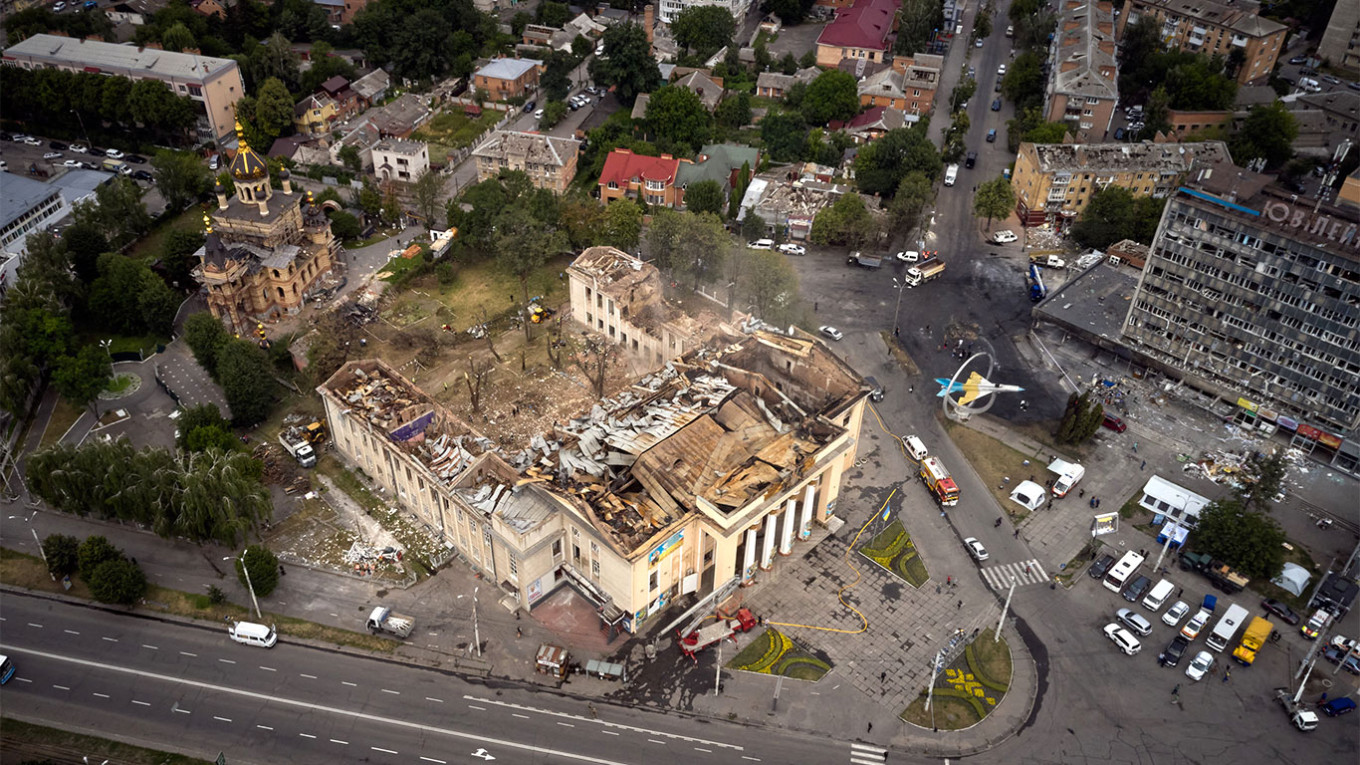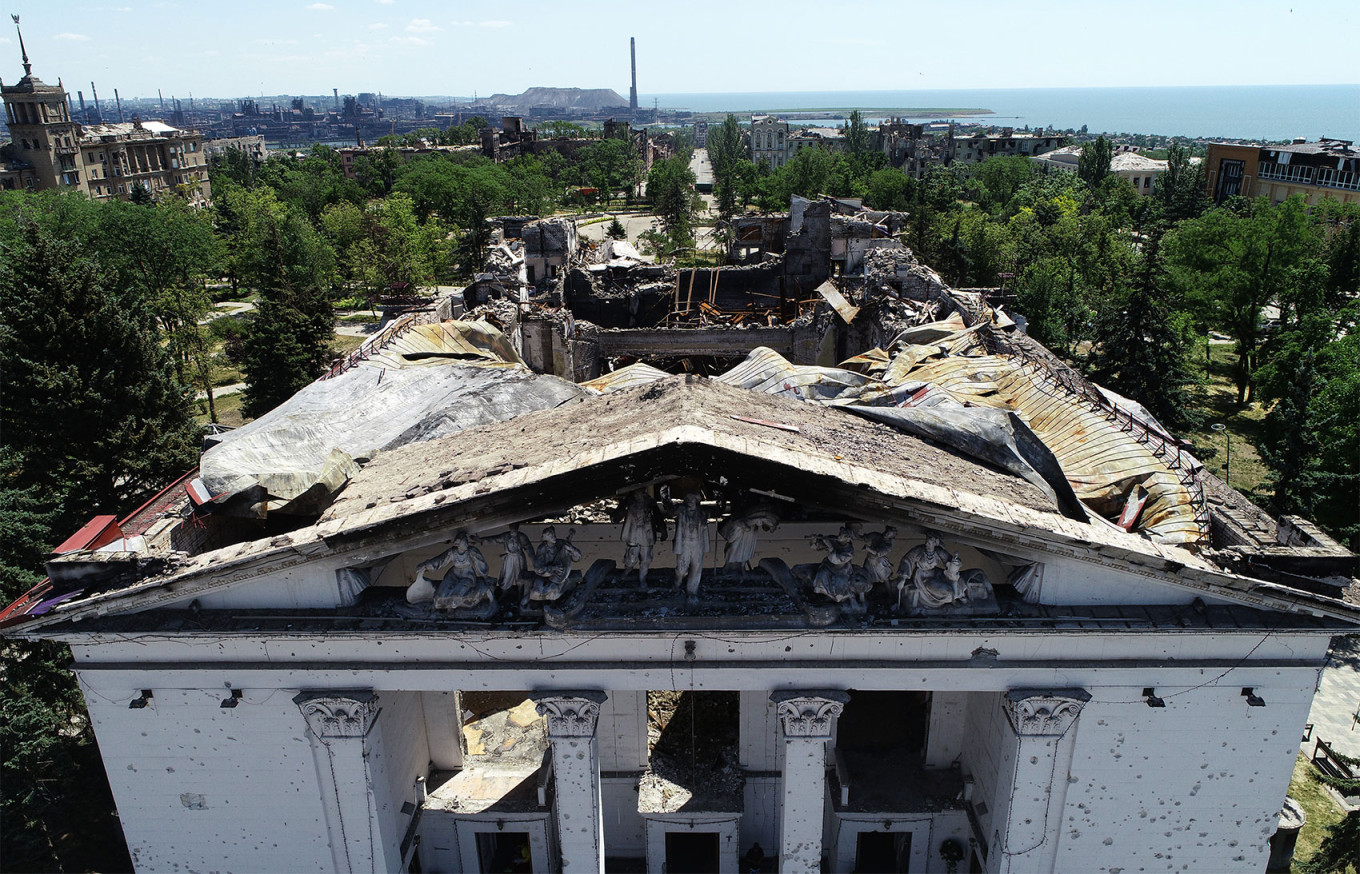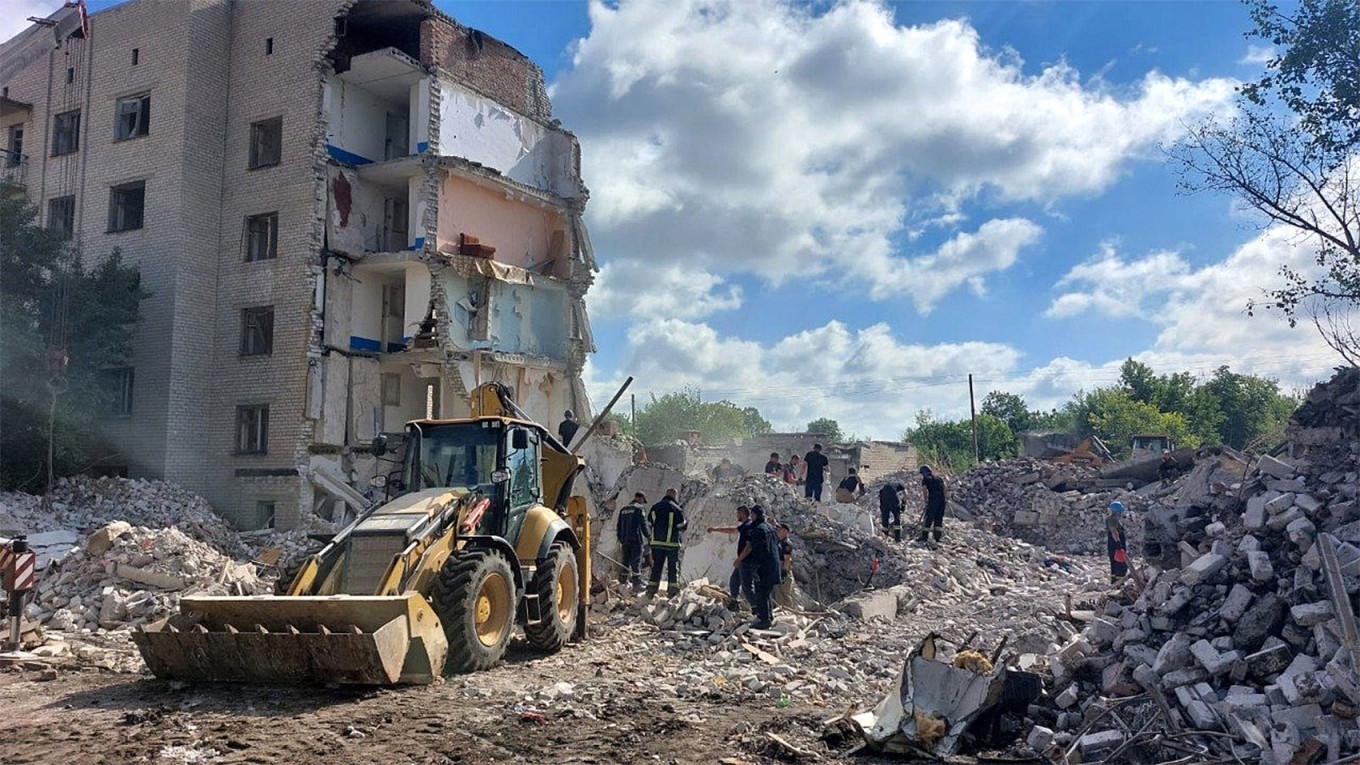When Russia was accused of striking the center of Vinnytsia, a Ukrainian city far from the frontlines, last Thursday, Moscow’s version of events rang familiar.
“On July 14, Kalibr (cruise) missiles were launched at the House of Officers in Vinnytsia,” Russia’s Defense Ministry said of the strikes that have killed at least 25 civilians, including three children. It claimed the building was hosting a meeting between Ukrainian military officials and foreign arms suppliers.
The past month of Russia’s invasion has seen a wave of missile strikes deep into Ukrainian territory as Moscow has paused its advance in the east, with Kyiv saying 70% of these strikes deliberately target “peaceful” cities.
Despite the mounting examples of Russia apparently targeting civilian areas, Moscow continues to eschew responsibility with a handful of talking points seeking to deflect and deny.
Whether by pinning the blame on Ukraine or attempting to paint civilian areas as military targets, Russia’s alibis have followed a pattern, Brian Castner, a war crimes investigator for Amnesty International, told The Moscow Times.
“Lately, we have seen Russian denials of attacks that are completely divorced from reality,” Castner said. “The Russians will claim to have struck a mercenary training camp, or a high-level meeting of Ukrainian generals, when in reality they hit a residential block full of civilians.”

Days before the strike on Vinnytsia, a Soviet-made missile ploughed into a residential block in the eastern city of Chasiv Yar, reducing the five-story building to rubble and killing 48, making it one of the deadliest attacks in Russia’s invasion.
Russia said the attack had “destroyed the temporary deployment point” of a Ukrainian territorial defense unit.
Pointing fingers
In the early days of the war, Russia would often predict attacks days before they happened, laying down a series of false flags ahead of the strike, Castner said.
Days before the March bombing of the Mariupol drama theater, pro-Kremlin Telegram channels warned of an imminent attack on the building, describing it is as a potential attempt by Kyiv to spark outrage in the West.
Shortly after, two 500-kilogram bombs dropped from a Russian fighter jet, smashing through the theater’s roof and detonating simultaneously, an Amnesty investigation found, as hundreds of civilians sheltered inside.
Kremlin-aligned figures have accused Kyiv of spinning facts, using its own citizens as human shields and staging atrocities throughout the conflict in order to shock international audiences and maintain high levels of Western support.
Maria Dubovikova, an expert at the state-funded Russian International Affairs Council (RIAC) think tank, told The Moscow Times that “[Ukrainian] state propaganda and media spinning are some of the most effective weapons in Kyiv’s arsenal, so they [Kyiv] have adopted an ‘anything goes’ strategy to maintain Western media interest in the Ukrainian conflict.”
On June 27, two Russian anti-ship missiles struck the Amstor shopping mall in Kremenchuk in central Ukraine, killing 20 shoppers and injuring 56, many of whom remained trapped inside as the building erupted into flames.
In the immediate hours following the strike, pro-Kremlin channels called the attack a “planned provocation” by Kyiv.

In the closest Russia has come to accepting any responsibility for an attack on civilian infrastructure since the start of the war, the Defense Ministry later claimed it had successfully hit a munitions store near the shopping mall, with the resulting fire causing the “non-functioning” shopping center to set alight.
“Ukrainian forces use civilian areas and multi-story buildings to deploy troops, munitions and anti-tank weaponry during Russian offensive maneuvers, creating human shields to prevent the advance of Russian troops,” RIAC’s Dubovikova said.
“Russian forces do all they can to preserve civilian lives and avoid non-combatant casualties. Sometimes at the higher cost of losing their own military personnel,” she added.

First-hand accounts, CCTV footage and satellite imagery analyzed by experts later discredited Moscow’s claims, finding the shopping center to be fully functioning when it received a direct hit from a Russian missile, a report by the BBC said.
‘Not ashamed’
Absolving Russia of any wrongdoing in Ukraine has been a crucial Kremlin tactic throughout the war, said Andrei Kolesnikov, a senior fellow at the Carnegie Endowment for International Peace.
The slogan “We are not ashamed” has appeared on T-shirts and other merchandise since February, while President Vladimir Putin has often claimed Russia had “no choice” but to invade neighboring Ukraine.
“Kremlin logic is to repeat these statements all the time, in order not to lose the obedient part of the domestic audience,” Kolesnikov said.
Besides, “what else can they say? Admit that they are on the side of evil?” Kolesnikov added.
Leave a Reply